Every day we are bombarded with information. From the morning paper to the news and social media throughout the day. We may not think about it now, but that's an overwhelming amount of information. And it can be dangerous in some cases. From fake news, either inaccurate information or information is highly biased. This in turn will affect you. It affects who you vote for, what you buy, and maybe how you feel. In terms of the information we consume dictates our entire lives. As a result, critical thinking skills will become our saving grace in our lives. It's a skill that so many of us lack in our lives, and it's also one of the most important.
The Importance of Critical Thinking
First, they help with critical thinking, a skill I said that many people lack these days. Critical thinking is just our ability to think and present evidence for our ideas. How is this different from how we usually think? Well, most of us tend to gravitate towards our personal reasoning. We cling to information and ideas naturally without testing them. And of course, we develop bias, pushing away other ideas and only accepting ideas and opinions that support our existing beliefs. To see what's in motion, consider a CEO who looks like the person I read in an article published in the Harvard Business Review. ((Harvard Business Review: 3 simple habits to improve your critical thinking)) he was very confident and believed that he was the leader of the company. But in the end, he lost one of his biggest clients. How did it happen? Because the CEO was sure that his customers would not leave and it would be expensive. He left out the possibility that they could leave. Another way to think about critical thinking is self-control, self-discipline, and self-improvement way of thinking. Why this is important comes down to a few reasons:
- Universal Skill – regardless of occupation, having critical thinking skills helps. True, some jobs are needed more than others, but there is always a time and place to use this skill anywhere. That is why many people appreciate this talent, regardless of the field.
- Improve language and presentation skills Critical thinking can also determine how we can best formulate and present our ideas.
- Encourage creativity - Critical thinking often requires, we think, creative. ((Mile Edition: think critically and creatively)) whether it's finding the sweet spot between ideas or presenting an idea right away as we get there through the creative process.
- Improving self-reflection - if critical thinking requires self-correction, there is a certain level of self-reflection involved. You can't present ideas using critical thinking skills if you haven't taken the time to think.
- Solve problems before they get bigger Critical thinking allows you to look at situations and assimilate them in different ways. We can identify problems before they become big problems.
Examples of Critical Thinking Skills
As I said before, critical thinking skills are not limited to specific jobs or scenarios. Examples of this mindset at work are:
- The manager takes customer feedback into account and uses this information to create training for employees in customer service.
- A real estate agent reviews homes and neighborhoods to determine how best to sell to their clients.
- The stock investor is watching the news to determine whether to sell his stock or invest in the company.
- The lawyer reviews the testimony to develop a strategy to win the case or whether the issue must be settled out of court.
- A team of nurses analyze the medical conditions of patients to determine in which order each patient should be treated.
Another great example of critical thinking is actually an exercise that you can do as well. It forms the basis of critical thinking skills. In this example, think about something someone recently told you. Follow these with the following questions. Questions in brackets dive deeper:
- Who said that? (Someone you know? Manager? Does it really matter who told you this?)
- What did they say? (Was it a fact or an opinion? Did they provide all the information or did they miss something?)
- Where did they say it? (Public or private area?)
- When did they say it? (Does time matter? Was it before, during, or after the important event?)
- Why do they say it? (Do they explain their opinion? Was the goal to make someone look good or bad?)
- How did they say it? (Recall their tons and body language. Were they happy, indifferent, or sad? Could you do whatever they said?)
This exercise is simple, but it adds perspective on what critical thinking is like.
How to develop critical thinking skills
Anyone can develop critical thinking skills, the big question is how to do it. Asking yourself questions is a good start and to do however dig deeper, consider these methods.
1. Ask Meaningful Questions
The questions mentioned above are solid, but you can go deeper. But before you ask them, it's key that you don't take everything you read or hear as absolute truth. It sets aside bias and favoritism, and helps you ask those important questions, such as:
- What's the problem?
- What are the solutions to this problem?
- What are the advantages and disadvantages of each of them?
You still have to believe in something, however, by setting aside prejudices and asking these important questions, you are confident in your decisions.
2. Look at the motives
Information and talk is always a motive. After all, the people are the ones who control that and there's always some kind of agenda. Yes, no one is always going to tell you straight out what it is, but it seems like there is one, evil or not. But understanding other people's motives can be tricky, and there are several pitfalls, as motives can often be combined with personality and character, or emotions are masked.((Elsevier: 5 traps for understanding folk motifs)) and that's all the more reason to evaluate information based on where it goes. It should also determine how to proceed, if at all.
3. Do research
Critical thinking skills, demand information. And while the information is overwhelming at times, it's also the most powerful tool around. It becomes incredibly powerful when you decide to make your own decisions. Do research when you have a problem, you have to decide or you have to make a decision. Google about the topic, and read books about it. As long as you have an understanding of how it will better prepare you for the future.
4. Never assume you're right
We all love to be right and naturally we think we are right most of the time. And why don't we? We naturally have a bias to put ourselves in the best light. But while this feeling is certainly good, it is one that can lead us astray: why our mind cannot be trusted and what we can do about it. Critical thinking requires introspection and self-control, and sometimes we have to admit that we are wrong. Thinking this way allows us to take other points of view. This helps us develop empathy and understanding of the parties. If your form of thinking is taking someone else's thoughts and comparing them to your own, you won't be doing much thinking. And it's definitely not critical thinking.
5. Make It Easy
Occam's Razor ((Wikipedia: Occam's razor)) is a term used in the hypothesis step in the scientific community. What this theory is about is that the hypothesis that provides the simplest explanation is most likely the one that fits all the facts. This is what we would call the most obvious explanation. And this obvious explanation is true until proven wrong. But the point here is that Occam's Razor is basically a theory that has a bias towards a common sense answer. However, it also has other uses outside of science. For example, you turn on the TV and see ads promoting expensive anti-aging creams. This is something that many are happy about. The big hook is that this cream will make you 10 or 20 years younger. But you can tear this one down with an Occam's razor. Have you ever heard of this product before? If not, how can it be such a big hit if it's so new? It is also fair to say that there is a high probability that the company behind the product hired a younger model is also contributing. This means it's more of a creamy hack and bloated.
Final Thoughts
Developing critical thinking skills is not as easy as asking questions. It's a deeper process that places a lot of weight on you. One must develop deep skills and set aside one's own thoughts and opinions. However, by doing this, you are opening the door to great self-development and self-realization. After all, so many people are looking for people who can think and think in more creative and critical ways.
More About Thinking Smarter
- What is creative thinking and why is it important?
- What is logical thinking and how to strengthen it?
- The Power of Deep Thinking: The Essence of Creativity


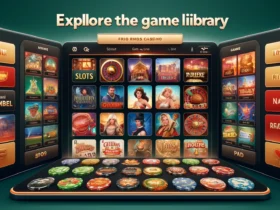
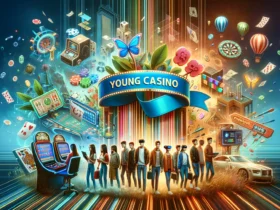

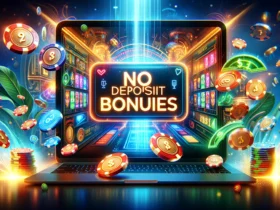
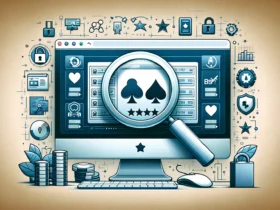
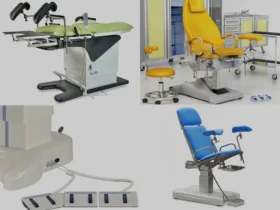


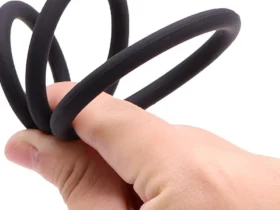



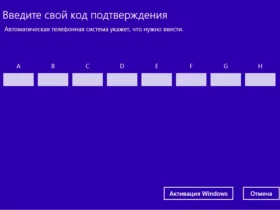




REPLY